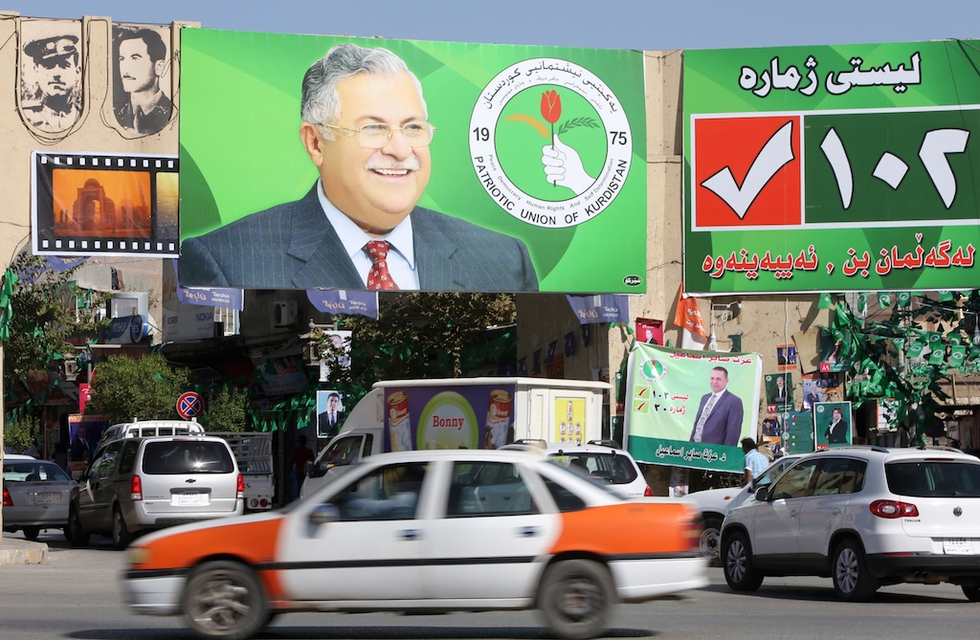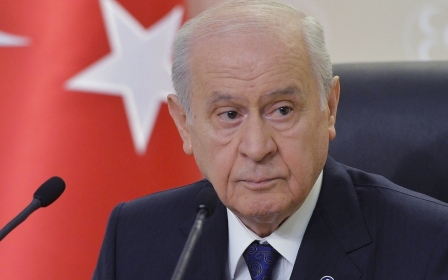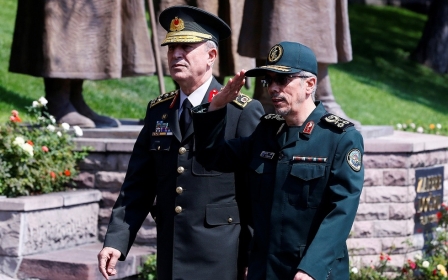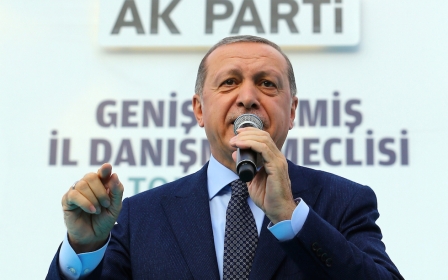Iraqi Kurdish leader expelled from Turkey after political 'complication'

A diplomatic row has broken out between Turkey and the Patriotic Union of Kurdistan (PUK) in Iraq, after the latter's representative in Ankara was expelled from the country over an unspecified "complication".
Though officials have been hesitant to spell it out, news sites close to the PUK claim the incident is linked to the recent kidnapping of two Turkish security officials by the Kurdistan Workers' Party (PKK) in Sulimaniyah, in Iraqi Kuridistan.
Behroz Galali left Turkey on Thursday with his family in tow after he was informed by the Turkish government that the Ankara office of the PUK, a centre-left party currently part of the ruling coalition of the Kurdistan Regional Government (KRG), was to close.
Speaking to a news conference upon his arrival in Iraqi Kurdistan, Galali implied that the closure of the office was linked to Ankara's opposition to an upcoming referendum on Kurdish independence set for 25 September.
"Turkey is concerned over the PUK's security institutions and that caused the office to be closed [in Ankara]," Galali said.
"Turkey opposes the referendum and it is certain it won't be held on September 25."
The incident came at the same time Turkish Foreign Minister Mevlut Cavusoglu was in the KRG capital of Erbil visiting with, among others, Deputy Prime Minister Qubad Talabani, who is a PUK member.
Turkey and the KRG, led by the Kurdistan Democratic Party (KDP), enjoy good relations and have strong international trade links.
However, tensions have risen since the announcement of the independence referendum, which Turkey fears could inflame nationalist aspirations among its own restive Kurdish minority.
The "complication," which reportedly provoked the expulsion of the PUK representative, has not been elaborated upon by Turkish or Kurdish officials, but is thought to have taken place in Sulimaniyah, a PUK stronghold.
According to Rudaw, Saadi Ahmad Pira, a senior member of the PUK politburo, discussed the issue with Cavusoglu and said that the expulsion came not as a result of tensions between the PUK and Ankara but "as a result of a failed activity of Turkey".
He added that Galali had been in Turkey for 17 years and was deeply unhappy about having to leave.
A report on the Kurdish news channel NRT, however, suggested that the "activity" being cryptically referred to was an attempted operation by Turkish intelligence to capture or assassinate a number of operatives belonging to the PKK in Sulimaniyah.
NRT reported that two operatives belonging to the National Intelligence Organisation (MIT) had arrived in Sulimaniyah, earlier this week, with the intention of assassinating a senior PKK leader.
The PKK have waged a guerilla war against Turkey since 1984, throughout which they have been based in the Qandil mountains in northern Iraq. Although the PKK and the KDP have long been deeply divided politically, PKK supporters are allowed to operate in Iraqi Kurdistan.
According to sources talking to NRT, the two operatives bungled the operation. After staying one night at Sulimaniyah's High Crest Hotel, they travelled to Dukan district where they were abducted by the PKK.
They have since been taken to the PKK headquarters in Qandil, the report added.
Although the PUK and PKK are not formally linked, Pira said that Ankara was holding the PUK responsible because of the organisation's dominance in Sulimaniyah.
Middle East Eye contacted the PUK for comment, but at time of publication had not received a response.
New MEE newsletter: Jerusalem Dispatch
Sign up to get the latest insights and analysis on Israel-Palestine, alongside Turkey Unpacked and other MEE newsletters
Middle East Eye delivers independent and unrivalled coverage and analysis of the Middle East, North Africa and beyond. To learn more about republishing this content and the associated fees, please fill out this form. More about MEE can be found here.




